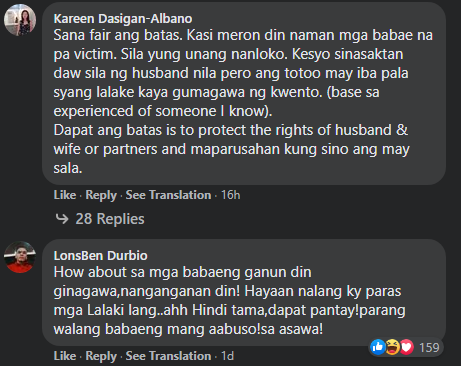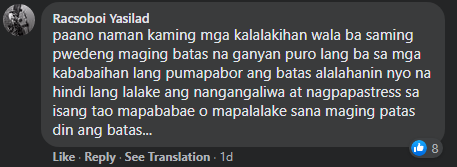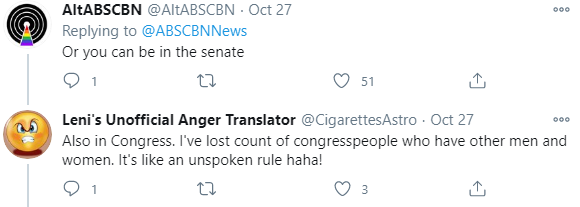There is a possible legal loophole that favors a wife’s testimony against her husband in cases of marital infidelity of the latter.
This was seen in a case of a man who was convicted for cheating on his wife, raising concerns that existing laws covering illicit affairs may not treat men and women the same way in complex emotional cases.
Last October 27, the Supreme Court’s First Division affirmed a man’s sentence of between six and eight years of imprisonment for violation of the Anti-Violence against Women and Their Children Act of 2004 after it upheld that he committed the crime of psychological violence through infidelity.
In a 20-page decision from Supreme Court Justice Diosdado Peralta, the man was found guilty beyond reasonable doubt for inflicting psychological violence on his ex-wife due to his illicit affair with another woman since 2007.
“Psychological violence is an indispensable element of violation of Section 5 of RA 9262. Equally essential is the element of emotional anguish and mental suffering, which are personal to the complainant. Psychological violence is the means employed by the perpetrator, while emotional anguish or mental suffering are the effects caused to or the damage sustained by the offended party,” the decision read.
The high court also noted that the victim’s testimony presented before the court was already enough to establish that she suffered from psychological violence.
“To establish emotional anguish or mental suffering, jurisprudence only requires that the testimony of the victim to be presented in court, as such experiences are personal to this party,” the SC said.
While this development mostly drew praises online, some Filipinos perceived it unfair that in other similar cases wherein a woman would also be at fault, only the man would held accountable.

Others also expressed views that the country’s laws on cases of marital adultery or infidelity are only favorable to female victims.

Some comments, meanwhile, claimed that even politicians from the local to the national level are unfaithful to their spouses.

Laws against affairs
In a televised interview on October 28, lawyer Gaby Concepcion said that the case is the first time that the VAWC law was invoked to put an unfaithful husband in jail.
There were attempts before to do so, however, those cases were returned from the high court to the Regional Trial Court due to lack of evidence.
Concepcion explained that under the VAWC, it was the emotional anguish caused by illicit affair by the husband, and not exactly the act of infidelity, that was the subject of guilt.
“Dito, ang pinaparusahan ang psychological violence inflicted on the wife. So ang importante dito ay hindi ‘yung fact na may kabit si mister. Ang pinarurusahan ay dahil ito nag cause ng mental anguish, nagkaron ng emotional effect ito dun sa babaeng asawa,” she said.
There is no new law, Concepcion said, that is against extra-marital affairs, citing the standing articles of the Revised Penal Code.
In Article 333 of the RPC, adultery happens when: “any married woman who shall have sexual intercourse with a man not her husband and by the man who has carnal knowledge of her knowing her to be married, even if the marriage be subsequently declared void.”
In Article 334 of the RPC, concubinage is committed when a husband keeps “a mistress in the conjugal dwelling, or shall have sexual intercourse, under scandalous circumstances, with a woman who is not his wife, or shall cohabit with her in any other place.”
Therefore, if proven guilty, either a man or a man who committed either acts shall be punished by “prision correccional in its medium and maximum periods.”
The VAWC, meanwhile, was passed to provide specific definitions of violent acts against women and children and the corresponding punishment for them.
In the case mentioned, part of section 5 described psychological violence as:
“Causing mental or emotional anguish, public ridicule or humiliation to the woman or her child, including, but not limited to, repeated verbal and emotional abuse, and denial of financial support or custody of minor children of access to the woman’s child/children.”










